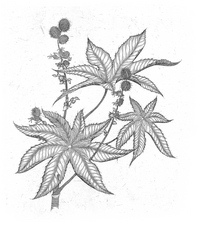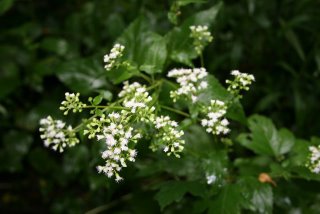
Author Stewart
On April 29 at 7 p.m. at Vroman’s Bookstore in Pasadena, author Amy Stewart, who normally resides in the Northern California hinterlands, will be speaking about her new book “Wicked Plants: The Weed That Killed Lincoln’s Mother & Other Botanical Atrocities.” The short trip to Pasadena could save your life. Plus, her talk comes just a week after Earth Day, should you want to keep your “green” ambitions burning brightly.
Stewart tends her own poison garden while also penning the perils and pleasures of other green patches in the natural world. As part of her research for “Wicked,” she traveled to the infamous poison garden on the grounds of Alnwick Castle in Northumberland England, also known as Hogwarts, the school of witchcraft and wizardry in the first two Harry Potter films.
But Stewart will be the first to tell you that you scarcely need to venture beyond your own yard to encounter nature’s awesome and sometimes deadly force. A precocious gardener, green blogger, author of four award-winning books and oft-featured New York op-ed writer, she wrote “Wicked” not as some sort of cheap Roger Corman, “King of the B”-movies-type vehicle to make the sales register to ring, but as the natural outgrowth and evolution of her own understanding of nature’s inimitable way.
“Just as the animal kingdom has a dark side,” said Stewart, speaking on her cell phone while tending her garden, “so too does the plant kingdom. Plants that we tend to think of as benign and charming can be extremely lethal.”

Amy is no shrinking violet in describing the potency of the plant kingdom.
Making her point, she cited the Australian Stinging Tree, a large shrub native to rainforest areas in North Eastern Australia known for stinging hairs which cover the whole plant and deliver a potent toxin when touched. Human contact with the leaves or twigs causes the hollow silica-tipped hairs to penetrate the skin. The sting causes a painful stinging sensation that can endure for days or even months, and the injured area becomes covered with small red spots joining together to form a red, swollen mass.
“It’s covered with this almost invisible peach-like fuzz that act like millions of mini hypodermic needles,” Stewart said. “According to reports, pain can last up to a year and can be reactivated by heat or sunlight. So if you come down with a bad case of poison ivy, just be thankful it isn’t something worse.”
Closer to home, Stewart spotlights several serial offenders from the plant kingdom, such as Southern California’s ubiquitous oleander bushes, the plant used most often for suicide by nursing home patients, Stewart sadly noted.
While sago palms make for unusual and popular ornamentals, these living fossils from the Mesozoic era can also be deadly to house pets, Stewart added, especially puppies with chewing fixations. All parts of sago palms – their seeds, feathery leaves and woody base– are poisonous.

Approach with Caution: Castor bean plants produce the deadly seeds that contain ricin.
Another killer is the castor bean, known for its gorgeous red leaves and stems. Its seeds contain the powerful poison ricin, which, if inhaled, injected or ingested, can cause death. “One seed chewed well could kill a dog or a person,” Stewart warned. Ironically, castor beans are completely legal, while coca plant leaves, which contain less than one-tenth of the cocaine alkaloid and have been used by Andean cultures for centuries on a par with caffeine or other mild stimulants, have been singled out for huge eradication programs by anti-drug officials.
Said Stewart, “I have to say that the idea of outlawing a plant is as odd to me as outlawing a bird or a pebble. It is also surprising to see the number of plants that are perfectly legal, but far more harmful than an illegal plant like cannabis or opium poppy. How and why we outlaw plants is an artifact of history that bears little relationship to the actual threat they pose.”
Stewart can turn a phrase and has a delicious sense of humor. She is as bright and cheery as a sunlit April garden, and is not at all doleful or morbid like her latest topic. As for what killed Lincoln’s mother, Nancy Hanks Lincoln died of “milk sickness,” a frontier scourge passed to humans through the milk and meat of cows and goats grazing on white snakeroot, a common southern Indiana wildflower.

Snakeroot, beautiful but deadly.
It may well be that this modest woodland wildflower changed the course of U.S. history, as it caused Thomas Lincoln and his family to move to Illinois, where Abe, then only nine, would grow his own political roots and launch his successful bid to be the nation’s 16th president.
Plants are powerful indeed, and Amy Stewart will give “Wicked” readers a new-found respect for the natural world all around them.
Vroman’s Bookstore is located at 695 E. Colorado Blvd in Pasadena; (626) 449-5320; www.vromansbookstore.com. Amy Stewart will also speak on her 2007 book, “Flower Confidential,” about the cut flower business on April 28 at the Crowell Public Library, 80 Huntington Drive in San Marino; www.sanmarinopl.org.



Leave a Reply